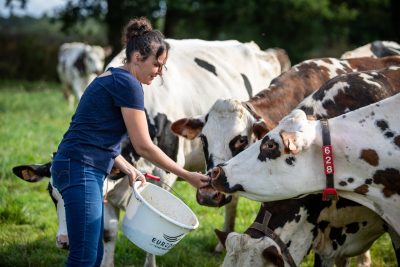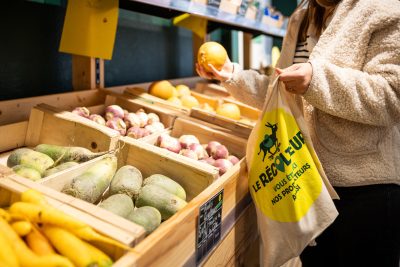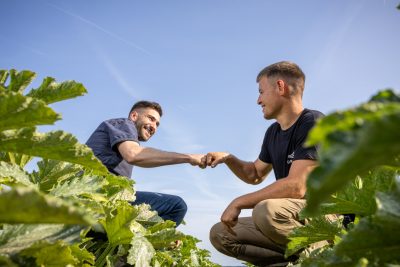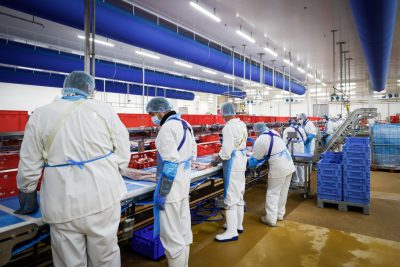

Respect for the planet
Conscious of the environmental challenges we face, we are committed to constantly improving our methods in order to preserve natural resources, reduce our carbon emissions and waste, while protecting biodiversity. Eureden aims to be a positive player in its industry.
Fighting climate change
Whether it’s for freezing or canning vegetables, or producing processed eggs or lardons, operating our industrial tools requires significant consumption of gas or electricity. At the same time, agricultural raw materials, especially those imported for animal feed, are high emitters of greenhouse gases. Based on this observation, and following the carbon assessment carried out on 3 scopes, we are deploying solutions in all our activities. We are committed to increasing the proportion of renewable energies in the energy mix. We are doing so through the production of biogas and bio-NGV through the recovery of co-products, or through the purchase of renewable energy, as is the case at our Spanish sites in particular. And because most of our carbon emissions are generated in upstream activities, particularly in animal nutrition, we are deploying solutions in the field, such as the low-carbon cultivation of rapeseed or the relocation of oilseeds/protein crops to Brittany in order to reduce soya imports.
Whether in the fields, in the office, in the factories or on the road, we encourage every employee, every co-op member and every supplier to adopt an eco-responsible attitude. Even if this requires changing the way the company operates and the daily life of everyone, these are real opportunities!
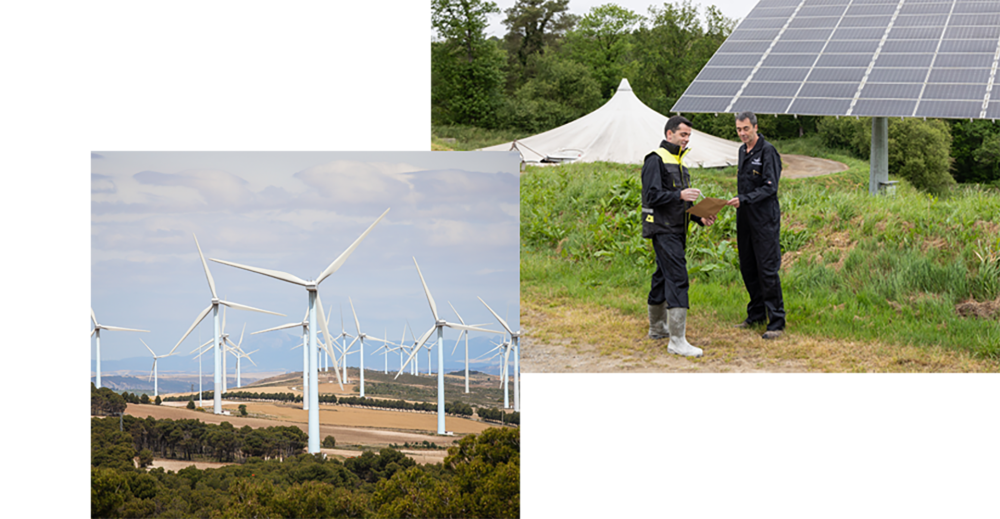
Conserving ecosystems and resources
Click here to find out more
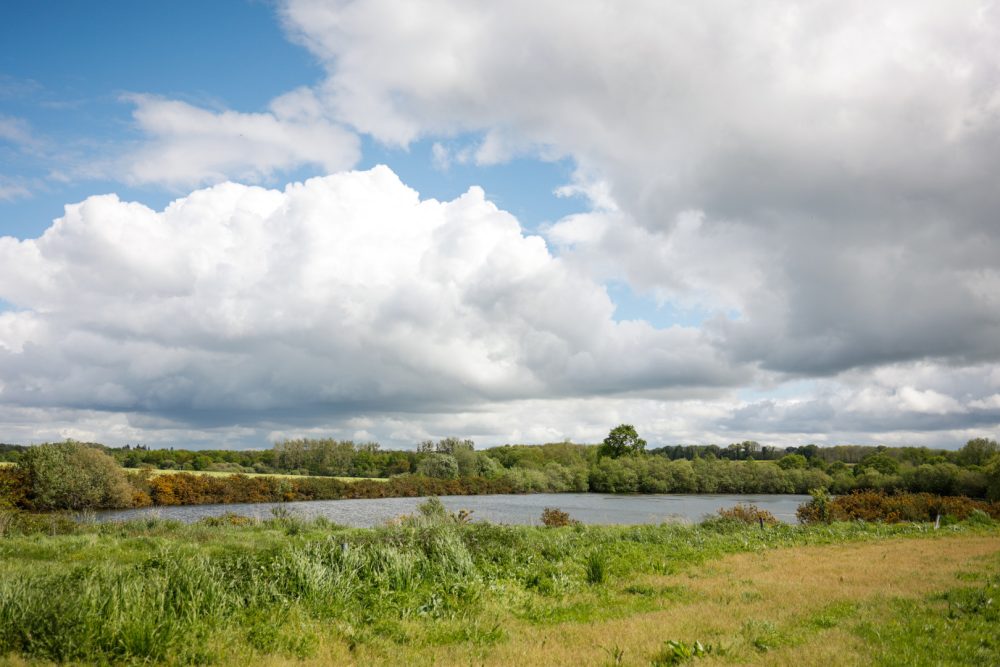
Opting for a circular economy
Reduce, Reuse, Recycle. Following the principles of the circular economy aimed at limiting resource waste and the environmental impact of a product, whenever possible, we reduce the use of resources, recover our co-products to transform them into new resources, and recycle the waste we produce. Concrete examples include a water purification process aimed at returning water to its natural environment; the use of eggshells as an organic soil improver; the use of plant by-products as biogas; the local recovery of cigarette butts; the collection and processing of agricultural plastic waste; and the sale of short-dated products at a lower cost to combat food waste.
So many ways to recover energy and materials and contribute to the preservation of our planet’s resources!



